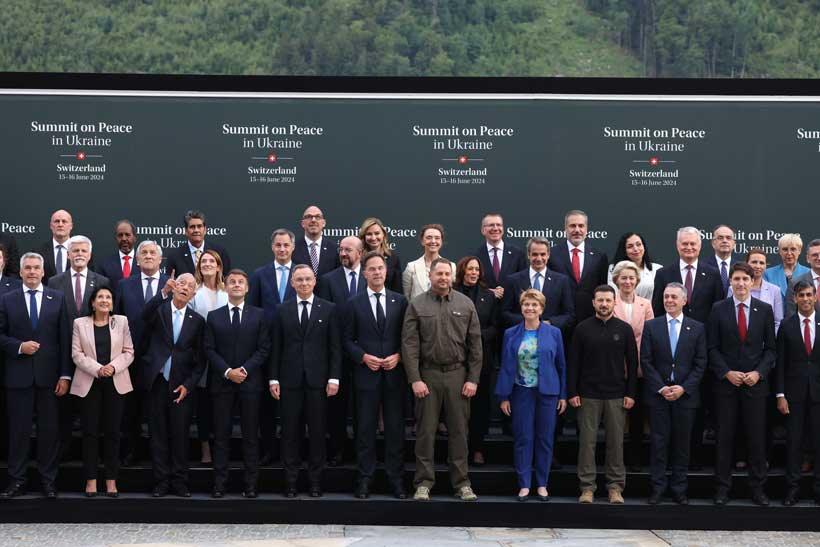The nonattendance of Russia at the Global Peace Summit initiated by Ukraine has dimmed prospects for a significant breakthrough, as has China’s choice to abstain. Countries such as India, Saudi Arabia, and the United Arab Emirates were notable for not endorsing the ultimate declaration, which centered on topics like nuclear security, food stability, and the repatriation of detainees.
The conclusion emphasized that the UN Charter and the principle of “respect for territorial integrity and sovereignty” are crucial for attaining a comprehensive, fair, and enduring peace in Ukraine. It was also mentioned that achieving peace necessitates the participation and dialogue of all parties involved.
During the final press conference, Viola Amherd, the Swiss president hosting the event, highlighted that the consensus reached by the “vast majority” of attendees on the final document demonstrates the potential of diplomacy. Prior to the summit, Russian President Vladimir Putin set stringent conditions for a ceasefire, including the demand for Ukraine to cede control of four regions in areas not only under Russian occupation but also in Ukrainian-controlled territories, demands promptly dismissed by Kyiv and its Western supporters.
Ursula von der Leyen, president of the European Commission, said the conference was “rightly” titled “Path to Peace” because such a goal will not be achieved in a single step.
“It was not a peace negotiation because Putin is not serious about ending the war. He is insisting on capitulation. He is insisting on ceding Ukrainian territory — even territory that today is not occupied by him,” she said. “He is insisting on disarming Ukraine, leaving it vulnerable to future aggression. No country would ever accept these outrageous terms.”
At the conclusion of the two-day meeting in Burgenstock, Ukrainian President Volodymyr Zelenskiy emphasized the importance of the support shown by Western and other leaders, highlighting the potential for the restoration of the rule of international law. Zelenskiy expressed his optimism for achieving tangible outcomes swiftly, aiming to showcase that the UN Charter can once again function effectively on a global scale.
The summit served as a platform for Zelenskiy to garner increased backing from a wider array of nations, particularly those from the Global South, while also ensuring continued international focus on Russia’s aggressive actions in Ukraine. This effort has become increasingly critical in light of mounting global weariness towards the prolonged conflict, ongoing strife in the Middle East, and escalating tensions surrounding Chinese activities vis-a-vis Taiwan.
During their meeting on June 16, representatives reached an agreement on a conclusive summit statement that emphasized three key issues: the importance of nuclear and food security, as well as the repatriation of prisoners of war and children displaced from Ukraine during the conflict.
Ihor Zhovkva, the deputy chief of staff for Zelenskiy, informed journalists at the summit that Kyiv opted to prioritize these three matters “due to the widespread support from the international community.” Ukrainian Foreign Minister Dmytro Kuleba stated on June 16 that the final communique reflects a well-balanced text, incorporating all of Ukraine’s fundamental stances that were advocated for. “While we acknowledge the necessity of engaging in dialogue with Russia in the future,” he remarked, “our stance remains unequivocal: we will not tolerate Russia’s current approach of issuing ultimatums.” Furthermore, the selection of the host nation for the subsequent conference aimed at advancing the progress initiated in Switzerland will also be determined on June 16 at the peace summit.
